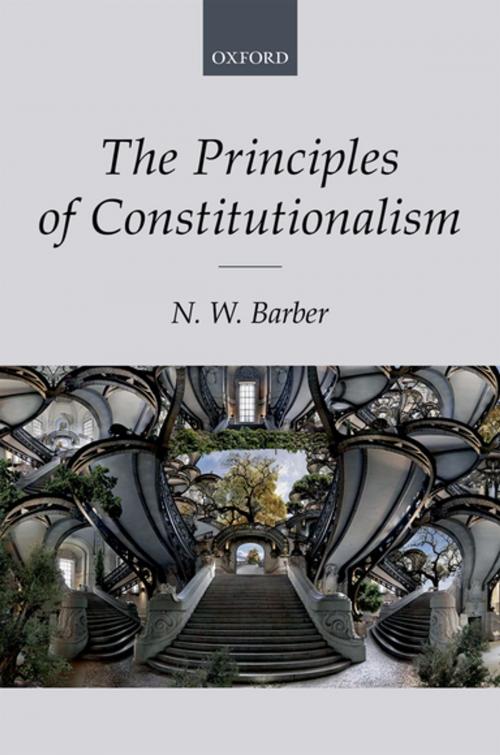The Principles of Constitutionalism
Nonfiction, Reference & Language, Law, Jurisprudence, Social & Cultural Studies, Political Science| Author: | N. W. Barber | ISBN: | 9780192535689 |
| Publisher: | OUP Oxford | Publication: | July 26, 2018 |
| Imprint: | OUP Oxford | Language: | English |
| Author: | N. W. Barber |
| ISBN: | 9780192535689 |
| Publisher: | OUP Oxford |
| Publication: | July 26, 2018 |
| Imprint: | OUP Oxford |
| Language: | English |
In this follow-up volume to the critically acclaimed The Constitutional State, N. W. Barber explores how the principles of constitutionalism structure and influence successful states. Constitutionalism is not exclusively a mechanism to limit state powers. An attractive and satisfying account of constitutionalism, and, by derivation, of the state, can only be reached if the principles of constitutionalism are seen as interlocking parts of a broader doctrine. This holistic study of the relationship between the constitutional state and its central principles - sovereignty; the separation of powers; the rule of law; subsidiarity; democracy; and civil society - casts light on long-standing debates over the meaning and implications of constitutionalism. The book provides a concise introduction to constitutionalism and a detailed account of the nature and implications of each of the principles in question. It concludes with an examination of the importance of constitutional principles to the work of judges, legislators, and others involved in the operation and creation of the constitution. The book is essential reading for those seeking a definitive account of constitutionalism and its benefits.
In this follow-up volume to the critically acclaimed The Constitutional State, N. W. Barber explores how the principles of constitutionalism structure and influence successful states. Constitutionalism is not exclusively a mechanism to limit state powers. An attractive and satisfying account of constitutionalism, and, by derivation, of the state, can only be reached if the principles of constitutionalism are seen as interlocking parts of a broader doctrine. This holistic study of the relationship between the constitutional state and its central principles - sovereignty; the separation of powers; the rule of law; subsidiarity; democracy; and civil society - casts light on long-standing debates over the meaning and implications of constitutionalism. The book provides a concise introduction to constitutionalism and a detailed account of the nature and implications of each of the principles in question. It concludes with an examination of the importance of constitutional principles to the work of judges, legislators, and others involved in the operation and creation of the constitution. The book is essential reading for those seeking a definitive account of constitutionalism and its benefits.















